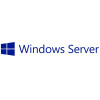KB5030216: This update affects firewall settings.
Improvements
This security update includes quality improvements. When you install this KB:
- New! This update affects firewall settings. You can now make changes that allow you to configure application group rules.
- This update supports daylight saving time (DST) changes in Israel.
- This update addresses an issue that affects Server Message Block (SMB). You cannot access the SMB shared folder. The errors are, “Not enough memory resources” or “Insufficient system resources.”
- The update addresses an issue that affects scheduled tasks. The tasks fail when they use stored local user account credentials. This occurs when you enable Credential Guard. The error message is "2147943726: ERROR_LOGON_FAILURE (The user name or password is incorrect).”
- This update addresses an issue that affects the Local Security Authority Subsystem Service (LSASS). It stops responding. This occurs when you use Azure Virtual Desktop (AVD).
- The update addresses an issue that affects those who use Windows Update for Business. After you are asked to change your password at sign in, the change operation fails. Then you cannot sign in. The error code is 0xc000006d.
- This update addresses an issue that affects the Local Security Authority Subsystem Service (LSASS) process. It might stop responding. Because of this, the machine restarts. The error is 0xc0000005 (STATUS_ACCESS_VIOLATION).
- This update addresses an issue that affects the Tab Window Manager. It stops responding when you use IE mode.
- This update addresses an issue that is related to changes in the forwarding of events.
- This update addresses an issue that affects the Group Policy Service. It will not wait for 30 seconds, which is the default wait time, for the network to be available. Because of this, policies are not correctly processed.
- This update adds a new API for D3D12 Independent Devices. You can use it to create multiple D3D12 devices on the same adapter. To learn more, see D3D12 Independent Devices.
- This update addresses an issue that affects virtual machines (VM). Creating new VMs fails for Azure Stack Hub customers. This occurs when you add a new node to a cluster.
- This update addresses an issue that affects certain VMs. Deploying them fails. This occurs because certain VM images do not respond to Address Resolution Protocol (ARP) requests if the source is outside of the local network.
- This update addresses an issue that affects Azure Stack HCI customers. Your attempts to create VMs fail. This occurs when you delete and recreate server Representational State Transfer (REST) resources for the Network Controller.
- This update addresses an issue that affects print jobs that are sent to a virtual print queue. They fail without an error.
- This update affects Windows Defender Application Control (WDAC). Its policy to block software based on a hash might not stop the software from running.
- This update affects unsigned WDAC policies. They are copied to the Extensible Firmware Interface (EFI) disk partition. It is reserved for signed policies.
- This update addresses an issue that affects the Remote Desktop (RD) Web Role. If you enable that role, it fails when you upgrade RD deployments more than once.
- This update addresses an issue that affects Narrator. Its focus does not change when the keyboard focus changes. Because of this, Narrator reads the wrong label within the dialog that appears when you sign in.
- This update addresses an issue that affects the Microsoft Distributed Transaction Coordinator (DTC). It has a handle leak. Because of this, the system runs out of memory.
- This update addresses an issue that affects the Resultant Set of Policy (RSOP). The Windows LAPS "BackupDirectory" policy setting was not being reported. This occurs when the setting is set to 1, which is “Back up to AAD.”
- This update addresses an issue that affects authentication. Using a smart card to join or rejoin a computer to an Active Directory domain might fail. This occurs after you install Windows updates dated October 2022 or later. For more details, see KB5020276.
- This update addresses an issue that affects DPM 2019 and DPM 2022. When you try to install them, it fails. This occurs because the Resilient File System (ReFS) stops responding.
If you installed earlier updates, only the new updates contained in this package will be downloaded and installed on your device.
For more information about security vulnerabilities, please refer to the Security Update Guide and the September 2023 Security Updates.
Windows Server 2022 servicing stack update - 20348.1960
This update makes quality improvements to the servicing stack, which is the component that installs Windows updates. Servicing stack updates (SSU) ensure that you have a robust and reliable servicing stack so that your devices can receive and install Microsoft updates.
Known issues in this update
Symptom
After installing this update on guest virtual machines (VMs) running Windows Server 2022 on some versions of VMware ESXi, Windows Server 2022 might not start up. Only Windows Server 2022 VMs with Secure Boot enabled are affected by this issue. Affected versions of VMware ESXi are versions vSphere ESXi 7.0.x and below.
Workaround
Please see VMware’s documentation to mitigate this issue.
Microsoft and VMware are investigating this issue and will provide more information when it is available.


